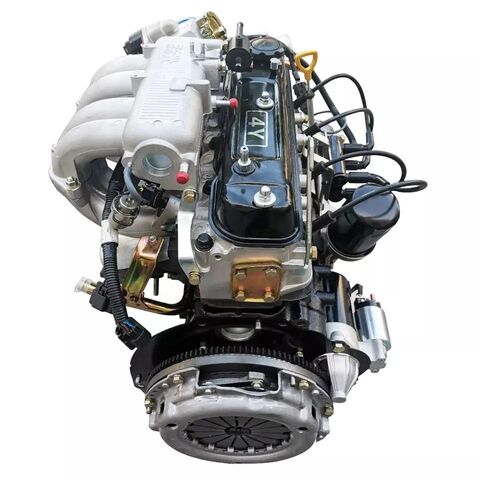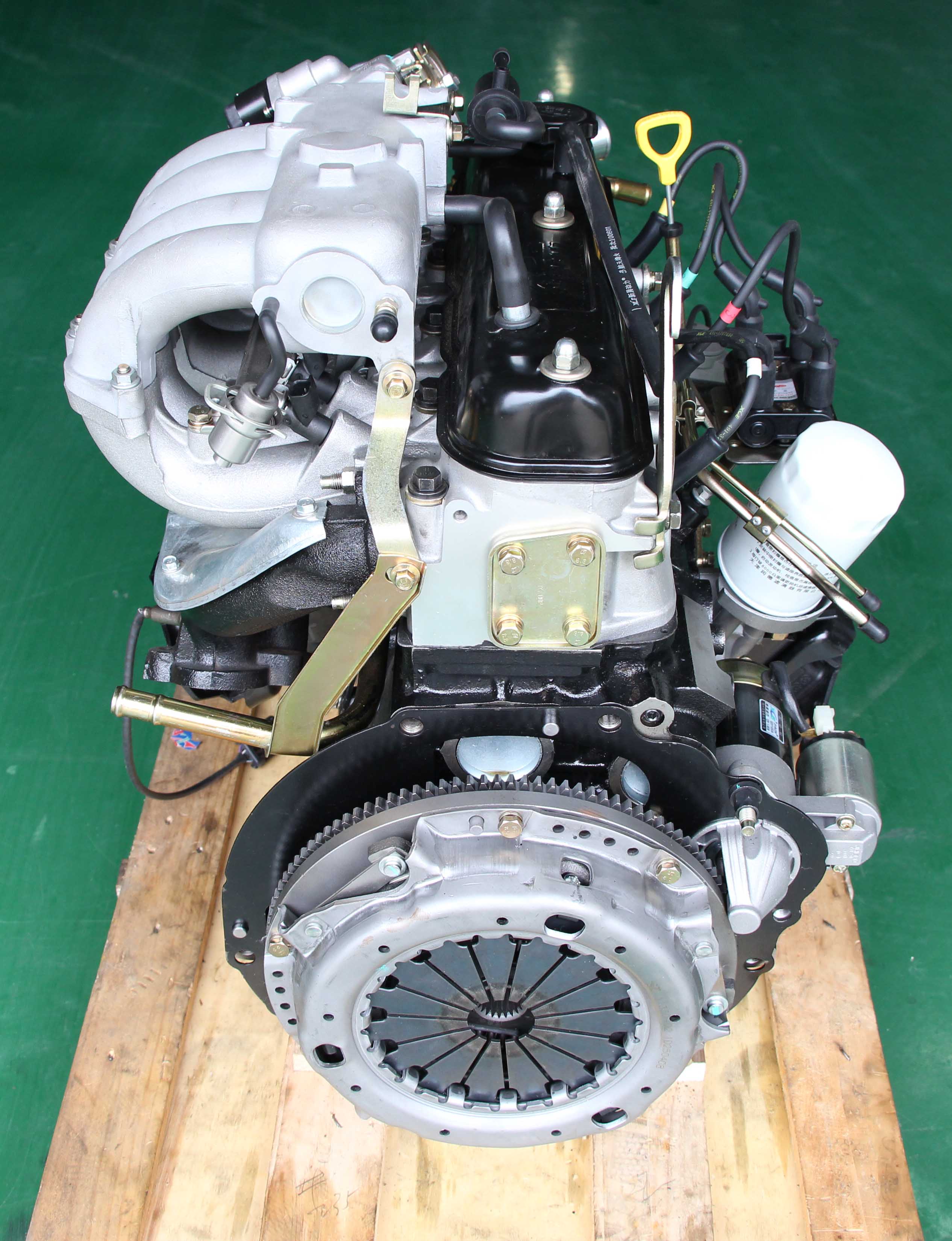How the 4Y Engine Compares to Other Engines in Terms of Fuel Efficiency
Checking Out the Different Kinds of Engine: Which One Fits Your Needs?
In the quest to identify the most suitable engine type for your specific requirements, it is essential to evaluate the unique qualities and benefits of each choice offered. Interior combustion engines remain to dominate as a result of their integrity, while electric engines are obtaining grip for their sustainability. Hybrid engines offer a functional compromise, and diesel motor stand apart for their power popular applications. Additionally, different gas engines existing ingenious remedies, albeit with particular constraints. Understanding your concerns will certainly be important in this decision-making process, bring about an expedition of elements that might affect your choice.

Interior Combustion Engines
Inner combustion engines (ICEs) are the foundation of modern-day transport, powering a large range of vehicles from cars to aircrafts. These engines operate the principle of transforming fuel right into mechanical energy with a series of controlled explosions within a combustion chamber. One of the most typical kinds of ICEs consist of gasoline engines, diesel motor, and rotating engines, each developed to fulfill specific performance and efficiency demands.
Gasoline engines typically make use of stimulate ignition, while diesel engines rely upon compression ignition, leading to distinctive differences in fuel effectiveness and power output (4y engine). Rotating engines, or Wankel engines, use a portable layout and smooth operation, but are much less generally used in mainstream applications
ICEs have undertaken significant developments in modern technology, consisting of the intro of turbocharging and fuel shot systems, which boost total effectiveness and efficiency. Despite their effectiveness improvements, ICEs encounter enhancing scrutiny due to their environmental impact, especially relating to greenhouse gas discharges.
Electric Engines
As concerns about ecological sustainability and nonrenewable fuel source dependency grow, electric engines have emerged as a compelling alternative to internal combustion engines. These engines use electric motors powered by batteries or gas cells, offering a cleaner and more effective motive powers.
One of the primary advantages of electric engines is their lowered discharges. Unlike traditional engines that melt nonrenewable fuel sources, electric engines create zero tailpipe exhausts, significantly decreasing air pollution and adding to enhanced public health and wellness. Additionally, the effectiveness of electrical motors commonly goes beyond that of internal burning engines, converting a higher proportion of power from the power source right into usable power for motion.
Electric engines are likewise remarkable for their peaceful procedure, making them perfect for urban environments. 4y engine. The simpleness of their design causes fewer moving components, which can cause minimized maintenance prices and raised integrity over time
However, obstacles continue to be, consisting of battery manufacturing effects, billing facilities, and variety constraints. In spite of these difficulties, the growing investment in electric car innovation and renewable energy sources factors toward an encouraging future for electric engines, positioned to play a vital duty in the transition toward lasting transportation.
Hybrid Engines
Blending the advantages of both conventional and electric interior combustion engines, hybrid engines represent a functional service in the pursuit for efficient and lasting transportation. These engines combine a fuel or diesel engine with an electrical motor, permitting enhanced gas efficiency and minimized discharges compared to traditional lorries.
Crossbreed engines run in several modes, utilizing the electric motor for low-speed driving and the inner burning engine for greater rates or when even more power is needed. This vibrant procedure not only enhances fuel economy however likewise contributes to a smoother driving experience. Regenerative stopping is another critical attribute, catching energy normally shed throughout stopping and rerouting it to recharge the battery.

As customers increasingly focus on eco-friendliness, hybrid engines stand out as a functional option, using look here a reliable balance of efficiency, effectiveness, and ecological obligation. This adaptability makes them suitable for urban commuting and long-distance traveling alike.
Diesel Motor
Effectiveness and power are trademarks of diesel motor, which have long been preferred for their effectiveness and gas economic climate. These engines run on the concept of compression ignition, where air is compressed to a high temperature before fuel is injected, igniting it without the demand for trigger plugs. This process allows diesel engines to achieve greater thermal performance contrasted to fuel engines, translating into much better gas mileage and reduced carbon dioxide discharges.
Diesel engines are especially appropriate for sturdy applications such as trucks, buses, and commercial equipment, where torque and resilience visit our website are critical. Their design normally consists of more powerful elements to stand up to the greater stress generated during procedure, leading to longer solution life and decreased upkeep prices.

Different Fuel Engines
While diesel motor have long controlled the landscape of durable source of power, alternate fuel engines are getting grip as viable alternatives for a much more lasting future. These engines utilize a range of gas, such as compressed gas (CNG), lp, hydrogen, and ethanol, intending to decrease greenhouse gas exhausts and dependence on nonrenewable fuel sources.
One significant advantage of different gas engines is their prospective to lower carbon impacts. CNG engines discharge fewer contaminants contrasted to typical diesel engines, making them appropriate for city transit systems and fleets seeking to improve air quality. Ethanol, originated from biomass, not just minimizes exhausts but additionally sustains agricultural economies.
Hydrogen gas cells stand for a cutting-edge growth in this realm, supplying zero-emission power with a chemical response between hydrogen and oxygen. Nonetheless, difficulties such as facilities growth and production prices remain barriers to prevalent adoption - 4y engine.
Conclusion
To conclude, picking the suitable engine kind requires careful factor to consider of certain needs and choices. Inner combustion engines provide reliability, while electric engines focus on sustainability and reduced maintenance. Hybrid engines integrate the benefits of both, enhancing effectiveness, whereas diesel motor offer exceptional power and torque for sturdy applications. Alternative fuel engines existing environmentally friendly alternatives, albeit with potential facilities obstacles. Inevitably, a detailed evaluation of driving my review here practices and environmental worths will certainly assist in an informed decision pertaining to engine choice.
Crossbreed engines provide a versatile compromise, and diesel engines stand out for their power in requiring applications. The most common types of ICEs include gasoline engines, diesel engines, and rotating engines, each made to meet certain efficiency and efficiency needs.
Unlike conventional engines that melt fossil gas, electric engines create zero tailpipe exhausts, significantly decreasing air pollution and adding to boosted public health and wellness.Crossbreed engines operate in several settings, making use of the electrical motor for low-speed driving and the internal burning engine for greater rates or when even more power is required. Hybrid engines integrate the advantages of both, enhancing effectiveness, whereas diesel engines provide remarkable power and torque for durable applications.